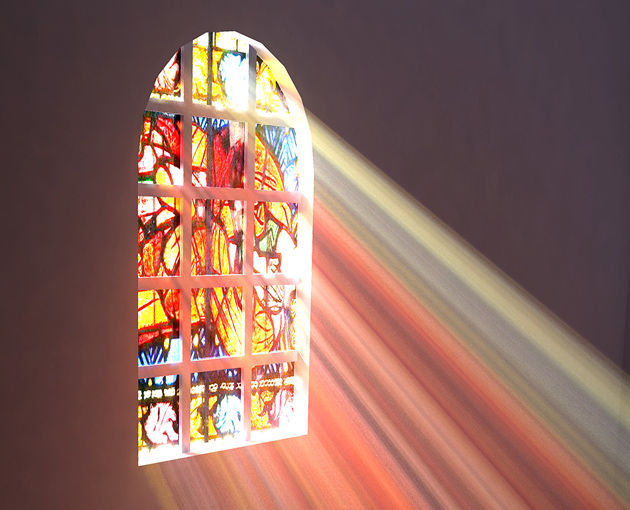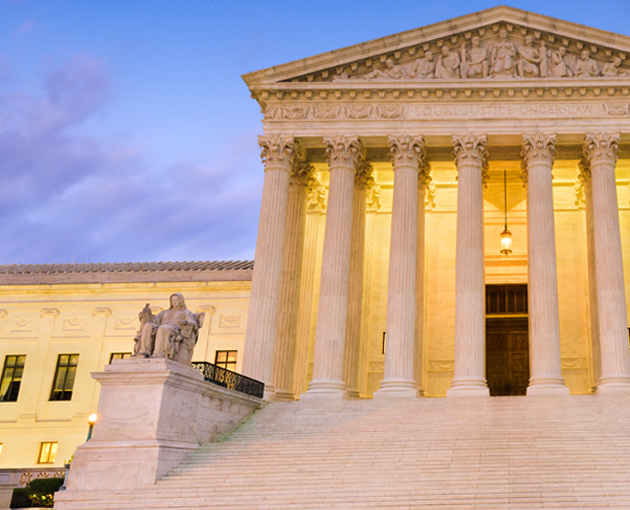Often expressed is a significant misconception concerning the meaning of the phrase “separation of church and state.” Where does that phrase come from? It is not in the Constitution, the Bill of Rights, the Declaration of Independence, or even Thomas Jefferson’s own draft of A Bill for Establishing Religious Freedom for the State of Virginia. It was not used in any legal case until it was quoted by the American Civil Liberties Union (ACLU) in 1947.
The phrase “a wall of separation between church and state” originally came from a letter written by Thomas Jefferson to assure a group of Baptist ministers identified as a Committee of the Danbury Baptist Association that they would be free to continue to exercise their faith as Baptists under the Constitution. This letter, written in 1802, reaffirms Jefferson’s view that religion is a matter of personal conscience and a civil legislative body had no prerogative to interfere with it. Jefferson wrote:
Believing with you that religion is a matter which lies solely between man and his God, that he owes account to none other for his faith or his worship, that the legislative powers of government reach actions only, and not opinions, I con-template with sovereign reverence that act of the whole American people which declared that their legislature should “make no law respecting an establishment of religion, or prohibiting the free exercise thereof,” thus building a wall of separation between church and State. Adhering to this expression of the supreme will of the nation in behalf of the rights of conscience, I shall see with sincere satisfaction the progress of those sentiments which tend to restore to man all his natural rights, convinced he has no natural right in opposition to his social duties.1
Jefferson’s view was that limits were to be placed by our Constitution on the legislature, not on the people, unless of course such issues of conscience were in “opposition to his social duties.” Since the phrase “separation of church and state” does not appear in the Constitution itself, it begs the question: Since when has a personal letter been the basis and precedent for legal rulings? How is it that this one phrase in a letter, taken out of context, now shapes the national consciousness? How is it that we ignore for political correctness sake the rich heritage of God-honoring history of the free exercise of religion and the freedom of speech that we have received?
On one side of the debate we have people who want to claim that this is a Christian nation and always has been. Their cause is to reclaim what America presumably used to be. They desire to see that certain laws are enacted to re-establish some measure of acceptable moral order. They tend to get defensive at any mention of “separation of church and state,” claiming that such wording does not appear in our founding documents. On the other side of the debate, there are people who do not want any religious influence, let alone Christian in-fluence, whatsoever in the public arena and deny that there ever was any such influence. These people are concerned that a religious perspective which they do not possess will be imposed upon them.
I would encourage all of us to embrace “separation of church and state” as an ally. It not only frees the church from government interference in its ministry, but it prevents unbelievers from being forced to support something they do not accept on their own. At the same time, it is to our advantage not to allow that wall of separation to be too high. The wall exists, but those on opposite sides can continue to dialogue across it. The Church has something significant to contribute to our community life, and the world has a perspective that can help the church minister in a more effective and relevant way. The Church must never compromise its message for the sake of accommodating the culture, but it is essential for the disciples of Jesus to be fully engaged and to know the people and the world with whom they seek to minister.
Historian Peter Lillback reminds us of the words written by Supreme Court Justice William Rehnquist in his dissenting opinion in Wallace v. Jaffree in June of 1985. Quoting Rehnquist, he states: “the ‘wall of separation between church and state’ is a metaphor based on bad history, a metaphor which has proved useless as a guide to judging. It should be frankly and explicitly abandoned.”2
by Pastor Steven Grant
1 Thomas Jefferson, “To Messrs. Nehemiah Dodge and Others, a Committee of the Danbury Baptist Association, in the State of Connecticut,” in Jefferson: Writings, ed. Merrill D. Peterson (New York, NY: Library of America, 1984), 510.
2 Peter Lillback, Wall of Misconception: Does the Separation of Church and State Mean the Separation of God and Government? (West Conshohocken, PA: Providence Forum Press, 2007), 75.







